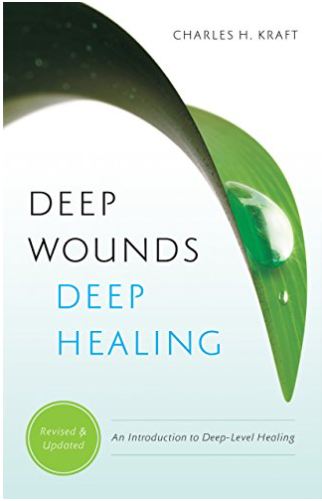“Deep Wounds, Deep Healing” by Charles H. Kraft is a profound exploration into the healing journey for those who have experienced deep emotional or spiritual wounds. Kraft, an esteemed professor, anthropologist, and minister with decades of experience in inner healing ministry, offers a compassionate and comprehensive guide for individuals seeking restoration and wholeness.
Key Features of the Book
- Holistic Approach: Kraft presents a holistic model of healing that addresses the emotional, spiritual, and sometimes physical manifestations of deep wounds. He argues that true healing comes from understanding and treating the root causes of pain, not just the symptoms.
- Integration with Christian Faith: The book integrates principles of Christian faith with psychological insights, providing a framework for healing that relies on spiritual resources, including prayer and scripture, as pivotal components of the healing process.
- Case Studies and Practical Guidance: Through a variety of case studies, Kraft illustrates the complexities of inner wounds and the personalized nature of the healing journey. He offers practical guidance and prayers that readers can use as tools for self-reflection and healing.
- Empowerment through Understanding: One of the book’s strengths is its ability to empower readers with the understanding that deep wounds do not have to define their lives. Kraft encourages readers to confront their pain head-on, with the promise that healing is possible through faith and the willingness to work through the healing process.

Connection to Counseling
This book serves as a valuable resource not only for individuals seeking healing but also for counselors, therapists, and pastors involved in the healing professions. The book underscores the importance of a compassionate, holistic approach to counseling that acknowledges the spiritual dimensions of healing. For professionals, Kraft’s insights offer a framework to better understand and support their clients or congregants through the healing process.
In the context of counseling, Kraft’s methodologies reinforce the idea that effective therapy should consider the whole person—mind, body, and spirit. Counselors can integrate the principles and practices outlined in the book into their therapeutic approaches, especially in environments where faith and spirituality play a significant role in the client’s life.
Furthermore, the book highlights the importance of creating a safe, empathetic space for individuals to explore their wounds and begin the healing process. This aligns with the core principles of counseling, where the therapeutic relationship itself can be a powerful catalyst for healing and transformation.

